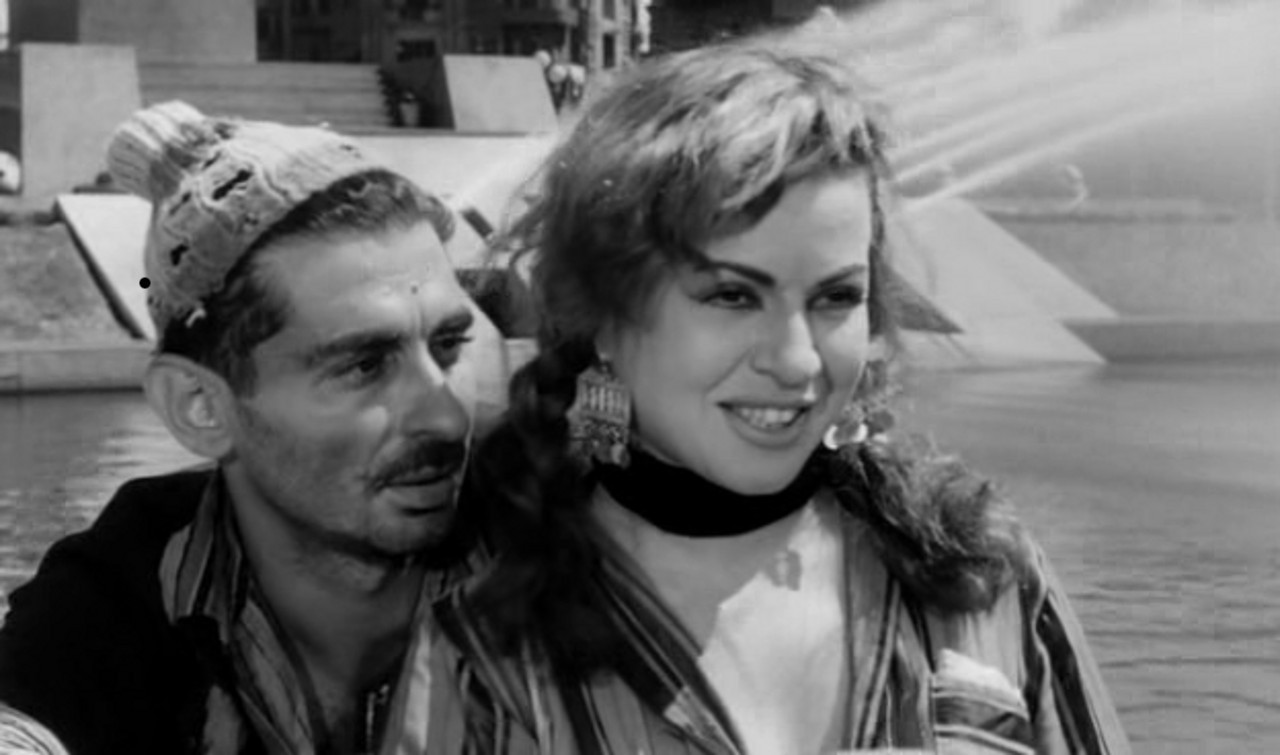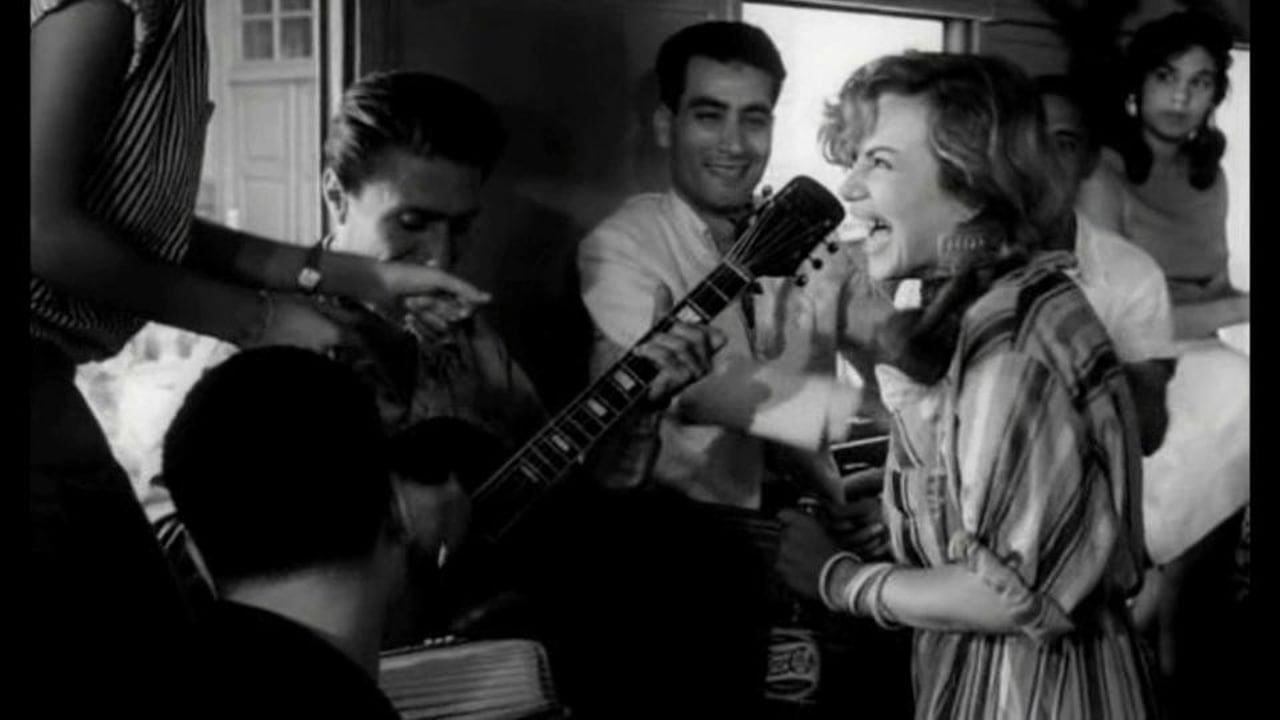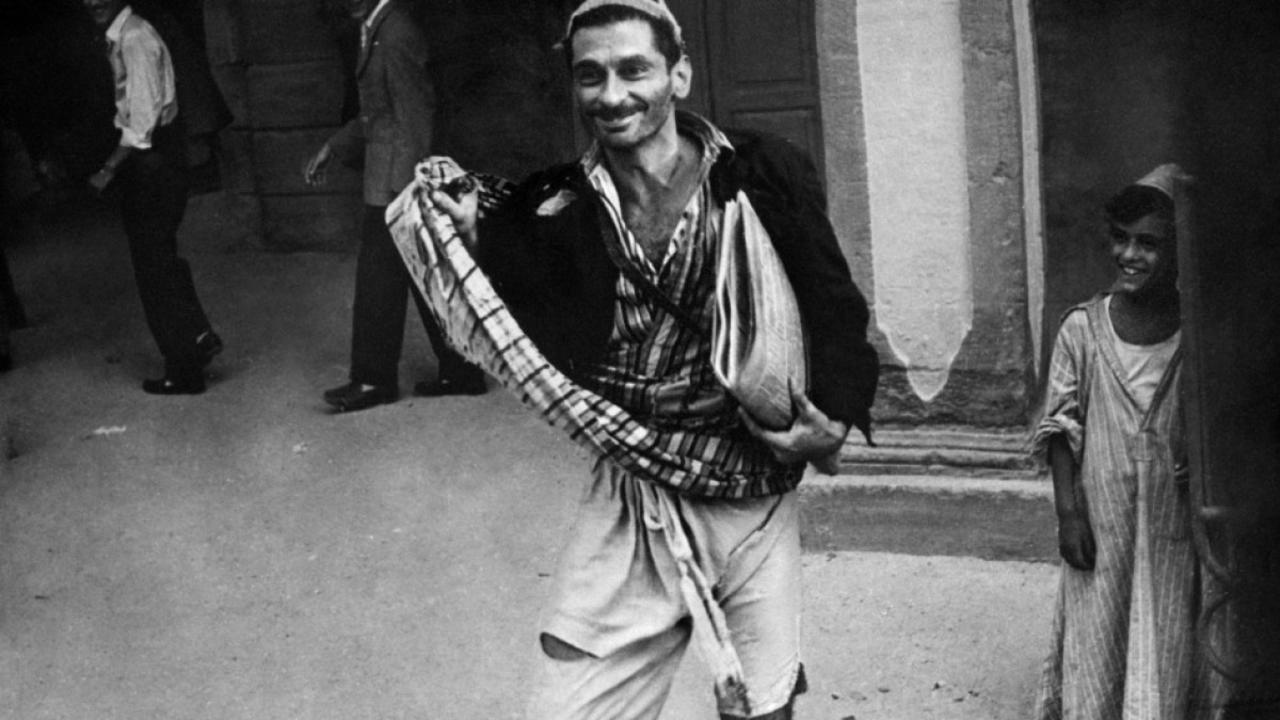As Qinawi — our despondent, hobbling, would-be protagonist in Cairo Station — retreats to his shed outside the train depot to rest, he shifts the pants hanging from a ramshackle clothesline to block the midday sun from his eyes. It’s the kind of Neorealist detail that the great Egyptian director Youssef Chahine excels at here, in this, his arguable masterpiece.
Italian Neorealism had more or less run its course by 1958, when Cairo Station was released. Its aesthetic influences and social concerns, creeping across the screens of the globe, were still being felt in treatments like this.
At the same time, Cairo Station could just as easily be cited as a moody noir — with its chiaroscuro window blinds and doomed misunderstandings — or a horror for that matter, or a melodrama. Chahine’s view is expansive.

Casting himself as the rather pathetic newspaper vendor with a limp, Chahine’s 11th film diverged from earlier Egyptian cinema in look, feel, and narrative. Taking place over a single day at the train depot, Cairo Station hinges on an unrequited love triangle (there’s the melodrama!) that develops between Qinawi, the over-the-top vivacious Hannuma (Hend Rostom), and her labor organizer fiancee Abu Siri (Farid Shawqi).
It’s really a love triangle in name only, though, existing in Qinawi fevered, lonely imagination. In close-ups of his own eyes held either agonizingly long or shot through in manic flashes, Chahine indicates where this is going, and it’s no place good.
Throughout all the film’s mounting intensity, there is also a sense of an Egypt in flux. Concerns range from the effect that the union organizing will have on existing power structures among the vendors, the rise of feminism and a rejection of marriage as an institution, rock n’ roll suddenly emerging as a destabilizing force threatening the traditionalists. Cairo Station packs a lot of social and political observation in among the tragedies and ultimate bloodletting.

And lastly, there is the nameless young couple who make three appearances. In the first, he sneaks through to briefly hold her hand at the station, breaking away from his family to steal a private moment. In the second, she waves goodbye to him as his train departs. And in the film’s final shot, it’s her we see, a spectator to the disaster of love and desire.
Is Chahine implying a new cycle about to begin? Or the possibilities of an unsure future, handed off to the pining youth after the adults have gone mad? It seems like a curiously hopeful, if ambiguous, shot to close on for Cairo Station, which is rarely particularly hopeful or ambiguous in its more general impact.
Chahine would go on to make films throughout the next several decades, though some stories indicate this was the one he held closest. It’s a great place to start.

